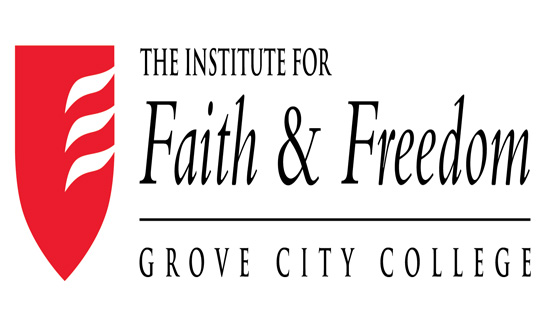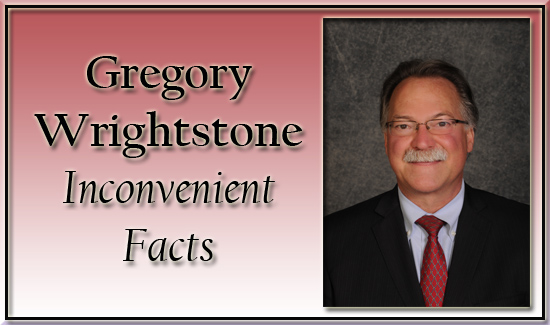The Martin Luther King They Ignore
![]()
Editor’s note: A version of this article first appeared at The American Spectator.
The date was September 1, 2015, a Tuesday. It was an unusual day at the Rowan County courthouse in Kentucky. County Clerk Kim Davis arrived shortly before 7:00 a.m. Awaiting Davis were dozens of reporters and a few lawyers. The media was hoping for fireworks. It was about to get them.
As soon as the office opened, two women, April Miller and Karen Roberts, both friends of Davis who were in the process of suing Davis, led the way to the counter to ask for a marriage license. Also present were two men, David Moore and David Ermold, likewise seeking a marriage license.
Kim Davis was tasked by the county with issuing marriage licenses, but she did not want to issue licenses to same-sex couples, at least not in her name as a Christian. Same-sex marriage, she believed, contravened the Scriptural teaching about marriage being between a man and a woman who leave their parents and become one flesh—the words of Jesus Christ invoking the Book of Genesis (see Genesis 2:24 and Matthew 19:4-6).
Unfortunately for Kim Davis, the federal government had recently imposed upon all 50 states a “constitutional right” to same-sex marriage. The U.S. Supreme Court, via its 5-4 ruling in the Obergefell decision the previous June, in one fell-swoop had taken the unprecedented step of the state redefining marriage. And now, Kim Davis, a county employee who issued marriage licenses, had to submit.
The same-sex couples that showed up that morning knew that. So did the protestors and media that gathered at the courthouse. It was time for a showdown.
“No licenses today,” figured April and Karen. The two Davids, however, were undeterred. “We’re going to ask,” said David Moore. Looking in Davis’ direction, David Ermold fumed: “This is terrible. What she has done is unconscionable, it’s unforgivable, it’s absolutely, absolutely ludicrous.”
Kim Davis recounts the moment in her memoirs. She approached the two men with a friendly smile. “Don’t smile at me,” Ermold snapped.
“Why shouldn’t I smile at you?” Davis asked gently. “I’m not being disrespectful to you.”
“You absolutely have disrespected us,” Ermold answered. His partner, David Moore, asked Davis: “Would you do this to an interracial couple?”
“A man and a woman?” responded Davis. “No.”
Davis explained to them her conviction that marriage is between a man and a woman. She said that if an interracial couple is comprised of a man and a woman, it isn’t violating Biblical law.
With that reply, the two Davids went silent, but the mob cut loose, shouting insults at Kim Davis about her marital status (she was divorced). Davis was in trouble. She and her lawyers released an official statement:
I have worked in the Rowan County Clerk’s office for 27 years as a Deputy Clerk and was honored to be elected as the Clerk in November 2014, and took office in January 2015. I love my job and the people of Rowan County.… In addition to my desire to serve the people of Rowan County, I owe my life to Jesus Christ who loves me and gave His life for me…. I love my Lord and must be obedient to Him and to the Word of God.
I never imagined a day like this would come, where I would be asked to violate a central teaching of Scripture and of Jesus Himself regarding marriage. To issue a marriage license which conflicts with God’s definition of marriage, with my name affixed to the certificate, would violate my conscience. It is not a light issue for me. It is a Heaven or Hell decision. For me it is a decision of obedience.
Davis, an elected Democrat, noted that she was receiving death threats. Nonetheless, she affirmed, “I cannot violate my conscience.”
The judge demanded otherwise. And so, two days later, Thursday, September 3, the 49-year-old Kim Davis was sent to jail. She was given an orange prison suit and handcuffed and shackled. A chain was wrapped around her waist that fell to her feet, which she dragged along.
The LGBTQ advocates gathered outside the courthouse and shouted at Davis. They denounced her as a “hypocrite,” “homophobe,” and called her “Hitler.” One person held a sign that screamed: “Kim Davis, F— You!”
The cross-examination of Davis was done by ACLU attorney Bill Sharp. The same ACLU that vows to protect civil liberties, including religious freedom, which is the first freedom of the First Amendment of the Bill of Rights. Here’s an excerpt from the chilling exchange:
Sharp: [You believe] God’s authority supersedes this Court’s authority?
Davis: He supersedes everything, sir.
Sharp: And that includes this Court’s authority?
Davis: Yes, sir.
Sharp: You interpret the Court’s preliminary injunction ruling as contrary to God’s will?
Davis: I do.
Sharp: As contrary to God’s law?
Davis: I do.
Sharp: As contrary to what you’ve described as natural law?
Davis: I do.
Sharp: But you chose to disobey the Court’s order because of your sincerely held religious beliefs?
Davis: I have.
Kim Davis cited not only God. She would also cite Martin Luther King, Jr.
While in prison, Davis took solace in King’s letter from the Birmingham jail. She saw how King understood that not all laws are moral, or just—especially when they violate God’s laws, natural law, and one’s freedom of conscience. Davis stated in her memoirs:
With the threat to natural marriage growing, Christians and people of faith and moral conviction had to consider if they would respond to the threat to their freedom as Dr. Martin Luther King Jr., had a generation earlier. When he was jailed for violating a law used to stop him from protesting injustice, Dr. King wrote his famous “Letter from Birmingham Jail.” In it, he gave his rationale for his action in which he made a distinction between just and unjust laws.
Davis continued in her interpretation of King. She noted that King was not a lawbreaker. “I would be the first to advocate obeying just laws,” King wrote. “One has not only a legal but moral responsibility to obey just laws. Conversely, one has a moral responsibility to disobey unjust laws. I would agree with St. Augustine that ‘an unjust law is no law at all.’”
Davis directly invoked King and Augustine. The Rev. Dr. King had invoked not only Augustine, but Aquinas. With elegance, King wrote:
You express a great deal of anxiety over our willingness to break laws. This is certainly a legitimate concern. Since we so diligently urge people to obey the Supreme Court’s decision of 1954 outlawing segregation in the public schools, it is rather strange and paradoxical to find us consciously breaking laws. One may well ask, “how can you advocate breaking some laws and obeying others?” The answer is found in the fact that there are two types of laws: There are just and there are unjust laws. I would agree with Saint Augustine that “An unjust law is no law at all.”
Now what is the difference between the two? How does one determine when a law is just or unjust? A just law is a man-made code that squares with the moral law or the law of God. An unjust law is a code that is out of harmony with the moral law. To put it in the terms of Saint Thomas Aquinas, an unjust law is a human law that is not rooted in eternal law and natural law.
King believed that a religious person has a moral responsibility to disobey unjust laws. As Kim Davis interpreted it, those being persecuted for resisting unjust marriage laws, or laws that violate their conscience regarding marriage laws, likewise have a duty to resist those laws.
Liberals, of course, have long been champions of conscientious objection, such as when seeking to avoid being drafted into combat. But with same-sex marriage, they acted very differently. Today, progressives who admire the Rev. King bully, fine, sue, shut down, smear, demonize, and dehumanize Christian bakers or florists or clerks who don’t serve them in accordance with their redefinition of marriage. Those people of faith and conscience are forced to follow laws they consider unjust and immoral. In response? Liberals grant them no toleration; to the contrary, they’re willing to jail them.
How could progressives reconcile such abusive behavior given the thinking of one of their icons, the Rev. Dr. King? They will say that the situations are different. But more than that, I would say that the answer is that they ignore these specific words of King, assuming they’ve learned about them—even in an era when King’s Birmingham jail letter is required reading in public schools, especially during his annual holiday.
In truth, they may be totally unaware of that section of King’s letter. I review the letter twice a year in two different courses at Grove City College. As students will attest, when I Google the letter on the classroom overhead screen, it often appears with an ellipsis in place of the natural law sections. Those sections are removed.
A typical example of this sin of omission is a King piece posted at CNN.com. Titled, “Three ways MLK speaks to our time,” the article praised King as a socialist and environmentalist. Notably not mentioned was the Reverend King’s invocation of natural law, freedom of conscience, and just laws. That’s the MLK that liberals often choose to ignore.
As for Kim Davis, she and her attorneys pleaded with the Commonwealth of Kentucky to reach a religious accommodation that permitted her to issue marriage licenses to same-sex couples albeit not in her name. It was a reasonable accommodation. There is no reason why governments and their citizens cannot strive to find common-sense compromises that honor our most sacred rights. To quote another King known for a civil rights battle, Rodney King, “Can’t we all just get along?”
The Rev. Dr. Martin Luther King, Jr. understood that, too.




